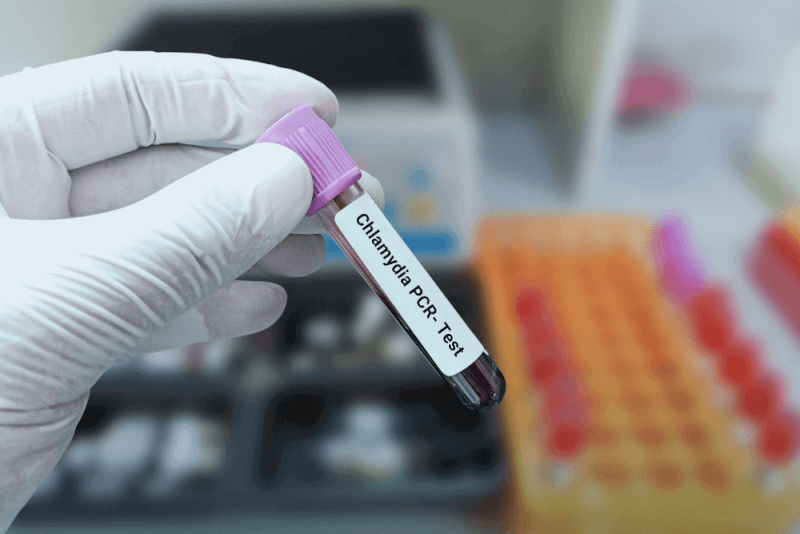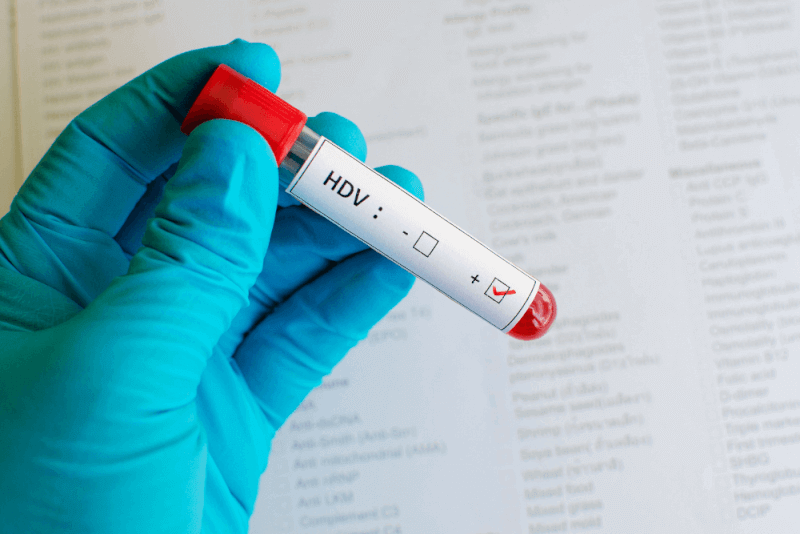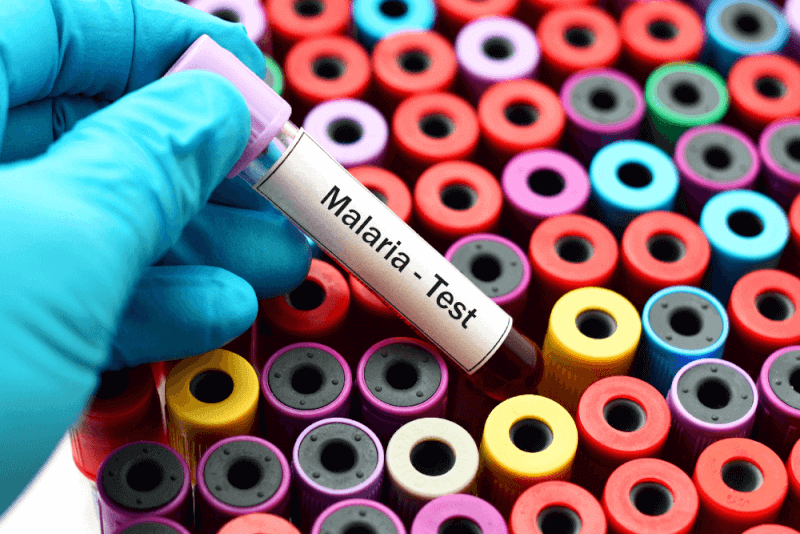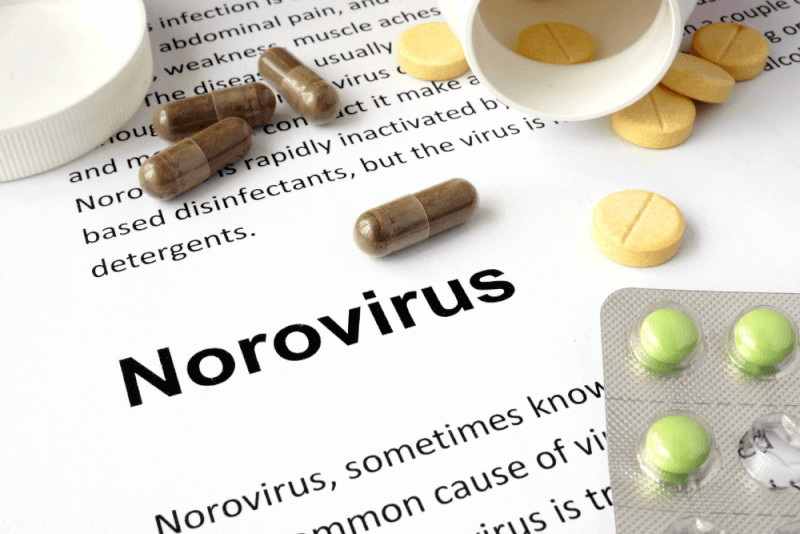What is chlamydia?
Chlamydia, caused by bacteria, is a sexually transmitted infection. Chlamydia is a treatable and curable disease and its symptoms often go unnoticed. Treatment should be carried out as soon as possible. Otherwise, it can lead to serious complications and cause permanent damage to the reproductive organs.
Chlamydia causes
Chlamydia infections are spread through sexual contact and the transmission of vaginal fluid or semen containing the bacteria that cause Chlamydia from one person to another. Sexual contact includes all kinds of sexual intercourse, including sex without penetration or ejaculation.
There are many ways that fluids from a person's genitals can carry the bacteria that cause Chlamydia. These ways include the following.
- During sexual intercourse, bacteria can pass from a person's penis to their partner or from their vagina to their partner.
- During anal sex, bacteria can pass from one person's penis to a partner's anus.
- During oral sex, bacteria can pass from a person's mouth to their partner's penis or vagina.
- Bacteria can infect sex toys.
- Manual stimulation of the genitals or anus
Not all situations involving the exchange of body fluids or intimacy cause chlamydia. It is not possible to transmit chlamydia in the following ways.
- Kissing
- Sharing food and drinks
- Hugging or holding hands
- Using the toilet after someone else
- Inhaling droplets after someone coughs or sneezes
Symptoms of Chlamydia
The main reason for the rapid spread of chlamydia is that the symptoms go unnoticed. The symptoms of the infection appear differently in men and women.
The symptoms of Chlamydia in women are similar to those of cervicitis or urinary tract infection. These symptoms include the following.
- White, yellow or gray discharge from the vagina that may be odorous
- Purine in the urine
- Increased need to urinate
- Bleeding between periods
- Pain or burning sensation during urination
- Painful intercourse
- Painful periods
- Dull pain in the lower abdomen
- Itching and burning in and around the vagina
The symptoms caused by chlamydia in men are similar to non-gonococcal urethritis. Symptoms seen in men include the following.
- Mucus-like or clear watery discharge from the penis
- Pain or burning sensation when urinating
Chlamydia can also affect parts of the body other than the reproductive organs. Symptoms that can be seen if these conditions are affected include the following.
- Anus pain, discomfort, bleeding or mucus-like discharge
- Redness, pain and discharge from the eyes
- Sore throat
Chlamydia diagnostic criteria (test)
The most common test for chlamydia is the nucleic acid amlification test. Doctors take a vaginal or cervical swab, collect a urine sample, and collect fluid samples. They then send the sample to a laboratory to check for the bacteria that cause Chlamydia.
What diseases does chlamydia cause?
The following are among the complications that chlamydia infection can cause in women if left untreated.
- Pelvic inflammatory disease, also called PID, is a serious health condition that requires hospitalization. It occurs when untreated diseases such as chlamydia damage the reproductive organs. PID can lead to infertility and chronic pelvic pain. It can also cause ectopic pregnancy, which can block the tubes and be life-threatening for the fetus.
- If a Chlamydia infection acquired during pregnancy is not treated, premature birth can occur. In addition, the infection can be transferred to the baby during birth. Untreated babies born with Chlamydia can develop pneumonia and conjunctivitis.
- If chlamydia is left untreated, permanent damage to the fallopian tubes, uterus or vagina can occur, making it difficult to become pregnant.
The complications caused by Chlamydia infection in men include the following.
- The infection can spread to the testicles and the tubes that carry sperm to the testicles, causing symptoms such as pain, swelling and tenderness in the testicles.
- Chlamydia can damage sperm and cause reproductive difficulties.
The complications of chlamydia, which can affect both men and women if left untreated, include the following.
- Increases the risk of developing reactive arthritis, which causes swelling and pain in the joints
- Increases the risk of contracting HIV
Chlamydia treatment methods
Chlamydia can be treated with antibiotics in about 1 or 2 weeks. However, patients should not stop taking the medication if their symptoms improve. After the medication has expired, follow-up is needed to make sure that the infection has gone away. Chlamydia infection can recur.
Part of the treatment includes abstaining from sexual activity to prevent re-infection and ensuring that sexual partners who may be infected receive treatment. During the treatment process, people should avoid sexual intercourse until the infection is cleared. It is also necessary to be tested for syphilis, herpes, chlamydia and HIV.
Antibiotics can make the infection go away, but they cannot reverse the damage caused by the bacteria before treatment. This is why you should be regularly screened for Chlamydia. Chlamydia does not go away on its own. Therefore, if left untreated, it can seriously affect health and sexually active people can infect others.
How to avoid chlamydia
The only way to prevent chlamydia is not to have vaginal, anal or oral sex with someone infected with chlamydia. Sex toys that carry the bacteria should also not come into contact with the genitals.
In addition, it is not always possible to know if a current or potential partner has Chlamydia. Safe sex practices should be followed, especially since many symptoms of the disease go unnoticed. These include the following methods.
- Using condoms during sexual intercourse, anal or oral sex
- Using dental dams during oral sex or vaginal contact
- Not sharing sex toys
- Washing sex toys after each use and putting condoms on toys used for penetration
- Having one partner








